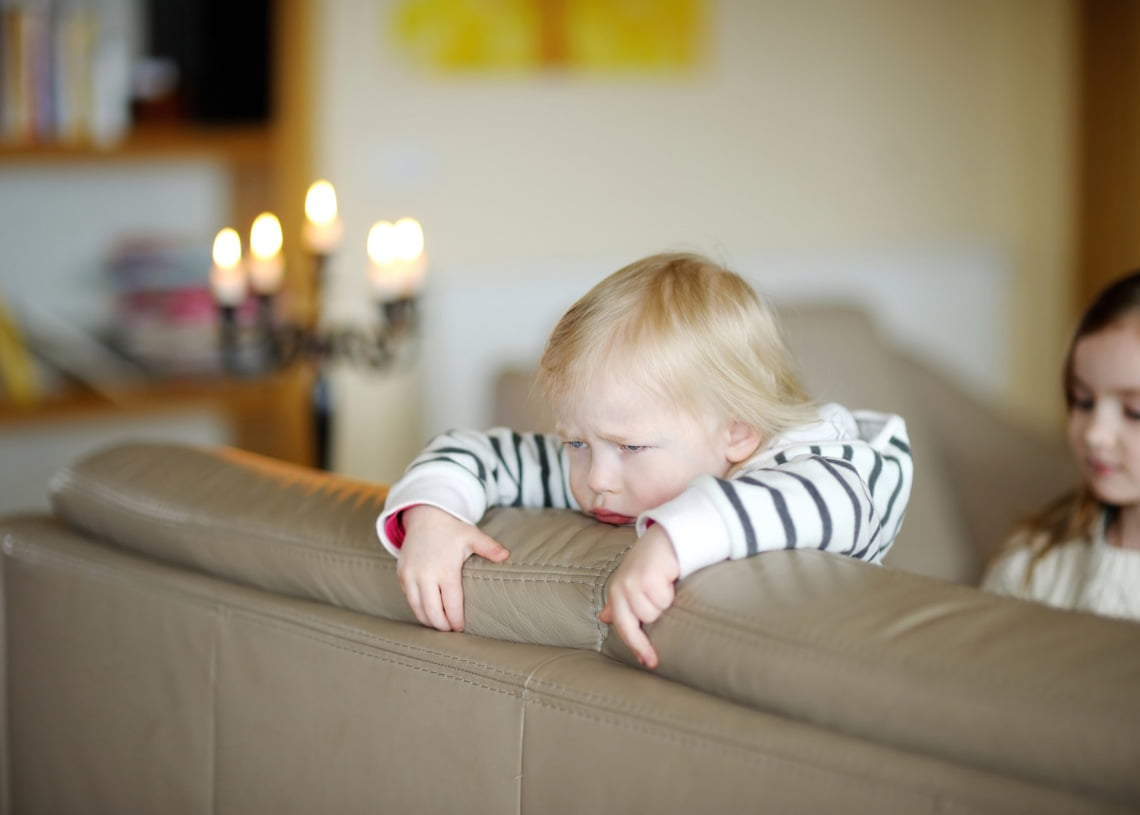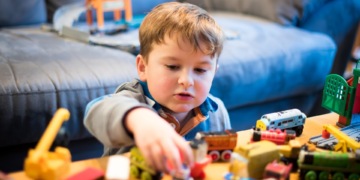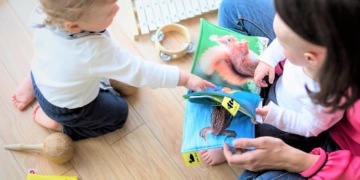Parenting a toddler can be a delightful adventure, but it can also come with its fair share of challenges. Especially when faced with rude behavior from your little one.
It can be triggering for most parents, often leading to more toddler tantrums and unpleasant behavior.
So in this guide, we’ll dive into how to handle a 3 year old’s rude behavior. We’ll explore practical and effective strategies to help you navigate this phase with patience and understanding.
But first things first – is your toddler’s rude behavior normal for their age?
Is Your 3-Year-Old’s Disrespectful Behavior Normal?
Yes, your 3-year-old disrespectful behavior is normal. It’s a part of a toddler’s development to push boundaries.
At this age, children are not only learning about the world around them but also about themselves and their autonomy.
They’re testing boundaries, experimenting with their newfound independence, and trying to assert what they want from what their parents need or want them to do.
This often comes across as defiant or disrespectful behavior, such as saying “no” frequently, throwing tantrums, or even using impolite words or gestures.
It’s also important to take note that children at his age are still learning how to manage their emotions.
They don’t know yet how to express their feelings of frustration, and anger, which can lead to often rude and sometimes, violent outbursts.
So remember that most of the time, your toddler is just having a hard time – they are not giving you a hard time.
Some level of “rudeness” from your 3 year old is expected so take note to empower your child with the necessary emotional and mental tools to express themselves and set clear boundaries that distinguish between acceptable and unacceptable behavior.
How To Handle 3 Year Old’s Rude Behavior
Here are some ways to handle your toddler’s disrespectful behavior without losing your cool:
Know your child’s developmental stage
When you’re aware of your child’s developmental stage and that your toddler’s rude behavior is likely normal for their age, you’ll be able to handle it with empathy and patience.
It’s easier to talk and connect with them when you know what they’re going through and you won’t be easily triggered if your toddler is acting out.
Stay calm
It’s normal to get triggered when your toddler is having a tantrum and is being rude.
But it’s important to always try to stay calm and collected, as you’re showing them how you regulate your emotions.
Our calm demeanor can model emotional regulation, teaching the child how to manage their feelings healthily.
Model good behavior
Children learn by imitation. Your actions and words carry immense influence over your child’s behavior.
If you want your child to be polite and respectful, you must also demonstrate those qualities consistently in your interactions with them and others.
Check if they’re hungry tired or both
It’s easy to overlook the impact of basic needs on behavior. Hungry or tired children are more likely to act out.
Always check first and see if it’s time for them to eat or take a nap, provide them what they need, before responding to their rude behavior.
Find the root cause
Rude behavior is often a symptom of an underlying issue.
Take the time to investigate what might be triggering your child’s behavior. Is it a recent change, stress, or a need for attention?
Is your toddler feeling jealous about your newborn’s arrival? Are they feeling left out when you put in so much effort in making your other baby sleep longer at night? Is there someone in daycare or the playground who’s bullying your kid?
Most of the time, getting to the root cause of the kid’s behavioral issues is half the battle and makes it easier to address their problem.
Validate your child’s feelings
Let your toddler know that it’s okay to feel upset or frustrated, and that’s perfectly normal to feel angry and upset at times.
But to also emphasize that their actions need to be respectful.
Validating their feelings helps them understand and manage their emotions better.
Listen intently
Just the simple act of listening to your child can make a world of difference.
Listening actively can provide insights into what’s bothering them and help you address the root cause of their rudeness.
Plus it makes them feel seen, validated, and respected, which can lead to them calming a bit more and being responsive to your advice.
Pick your battles
Not every instance of rudeness requires immediate intervention.
Assess the situation and determine whether it’s a minor issue that can be overlooked or a behavior that needs correction.
Prioritizing your battles can prevent unnecessary conflicts and power struggles.
Be patient
Remember that rude behavior is often a phase that children outgrow with time and guidance.
Be patient with your child as they navigate this challenging stage of development.
Don’t expect them to instantly learn how to manage their emotions and behavior.
Remember they’re only 3 years old and it takes time for a toddler to figure out and learn new skills, including emotion regulation.
Give your child choices
Empower your child by offering choices within reasonable limits.
Don’t just tell them what they need to do. Give them choices on how and when to do it, within reason. For eg. if they’re transitioning from a crib to a floor bed, make them choose their bedsheets. Or provide ideas on how to walk towards their floor bed – like a crab, hope like a frog, etc.
This not only gives them a sense of control but also reduces the likelihood of power struggles, which can lead to rude behavior.
Respond without insult
Never resort to insults or derogatory language when your child is being rude.
Focus on the specific actions that were inappropriate, rather than making personal attacks on your child’s character.
Set limits and enforce them
Clearly define boundaries and consistently enforce consequences for crossing those boundaries.
Children thrive on structure and consistency, and knowing the consequences of their actions helps them learn responsibility.
Redirect as needed
When your child exhibits rude behavior, gently redirect their attention to a new topic of conversation or toddler-appropriate indoor or outdoor activities.
This technique can help them shift their focus away from the negative behavior.
Avoid threats
Threatening your child can escalate the situation and undermine your authority.
Instead, communicate consequences calmly and consistently, ensuring they are appropriate for the offense.
Compliment them when they’re being kind
Positive reinforcement is a powerful tool in shaping behavior.
Whenever your child displays polite and respectful behavior, offer praise and encouragement to reinforce those positive actions.
Discipline, don’t punish
Effective discipline should aim to teach, not shame.
Focus on guiding your child toward better choices rather than using harsh punishments that can damage their self-esteem.
Know when to walk away
If your child is in the middle of a tantrum or meltdown, sometimes the best response is to give them space and time to calm down.
Trying to reason with a highly emotional child can be counterproductive, so knowing when to step back is important for both you and your child’s well-being.
Just reassure them that you’re going to stay by their side and wait until their feelings pass.
Should You Punish Your 3-year-old For Being Rude?
No, you shouldn’t punish your 3-year-old for being rude. Physical or verbal punishment is not the best approach to handling a toddler’s rude behavior.
Do other discipline techniques instead, such as explaining and enforcing consequences, which can lead to your toddler responding and learning better.
How To Enforce Consequences For Your Toddler’s Rude Behavior
Create and talk about the consequences
To effectively enforce consequences for your toddler’s rude behavior, it’s essential to establish clear rules and age-appropriate discipline.
Sit down with your child and explain these rules in simple, age-appropriate language.
Discuss the consequences calmly, so your child understands what to expect if they engage in rude behavior.
When children have a clear understanding of the cause-and-effect relationship between their actions and the consequences, they are more likely to make better choices.
Explain why their behavior is rude
Take the time to explain to your child why certain behaviors are considered rude.
Explain it simply, using language they can understand, and provide real-life examples if possible.
This helps your child connect their actions to the impact on others, fostering empathy and a deeper understanding of the importance of respectful behavior.
Give your child a warning
Before dishing out consequences, give your child a warning first when they display rude behavior.
This warning serves as an opportunity for them to correct their actions and avoid facing the consequences.
It also reinforces the idea that they have control over their behavior and can make better choices.
Be consistent
Consistency is the cornerstone of effective discipline.
Ensure to follow suit with the consequences if your toddler engages in rude behavior.
This consistency helps your child understand that the rules and consequences are non-negotiable, reinforcing the importance of respectful conduct.
Don’t withhold affection
While it’s crucial to address and enforce consequences for rude behavior, never withhold affection from your child.
Children need to feel loved and secure, even when they make mistakes.
Make it clear that your love for them is unconditional, separate from their behavior, and that you still care about them, even when you’re disciplining them.
Never use physical punishment
Physical punishment is never an appropriate means of enforcing consequences.
It can lead to serious negative consequences, both emotionally and physically, for the child.
Instead, focus on discipline techniques that promote learning, communication, and emotional growth while maintaining a safe and nurturing environment for your child to thrive.
FAQ About Handling Toddler’s Rude Behavior
How do I get my 3-year-old to stop being rude?
You can stop your 3-year-old from being rude by using the strategies mentioned above, focusing on teaching appropriate behavior and reinforcing positive actions.
How do you punish a 3-year-old for bad behavior?
It’s not encouraged to punish a 3-year-old’s bad behavior. Consider setting up consequences instead, that are fair and appropriate for their age.
Why is my 3-year-old being rude?
Your 3-year-old may be rude because of a variety of factors, including developmental stages, stress, or seeking attention.
How do I deal with my 3-year-old being mean?
You can deal with your 3-year-old being mean by teaching them empathy, kindness, and appropriate ways to express emotions.
How To Handle 3 Year Old’s Rude Behavior: Takeaway
In summary, parenting a 3-year-old comes with its share of challenges, including dealing with their occasional rudeness.
Learning how to handle a 3 year old’s rude behavior is essential for nurturing their growth.
By understanding their developmental stage, staying calm, and setting clear boundaries, you provide the guidance they need to navigate emotions and interactions respectfully.
Remember, each child is unique, so adapt these strategies to suit your child’s specific needs.
With patience and love, you’re not just managing their rudeness; you’re shaping them into kind, considerate individuals on their journey of growth and learning.




























